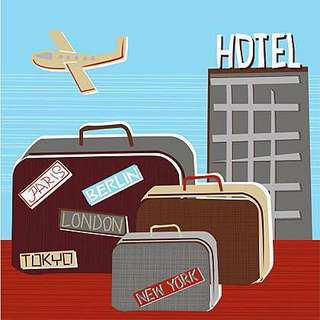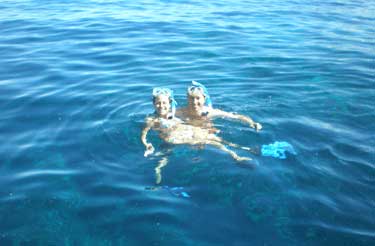Traveling Timeline After Heart Surgery
By Adam Pick on November 25, 2013
Travel during the holiday season is expected to increase this year, up from the 93.3 million travelers who ventured at least 50 miles away from home this time last year, according to AAA. Although many medical professionals recommend avoiding traveling during recovery, it seems practically unavoidable during this family-centered season. However, just because you might be going against this advice, it doesn’t mean you should throw all caution to the wind. These tips break down some important considerations for traveling after heart surgery.

Two weeks
The National Health Service recommends checking with your airline BEFORE flying, since companies have varying regulations on post-surgery travelers. However, the Civilian Aviation Authority says that 10 to 14 days is sufficient after chest surgery or a coronary artery bypass graft. After any heart operation, patients should remain moderately active to keep the heart pumping. Avoid tight clothing to prevent circulation inhibition as well.
During your early recovery, you’ll want to maintain only moderate activity at your destination. If your destination is the Midwest, consider staying at Wisconsin Dells resorts to take advantage of spas and other relaxation-enhancing amenities. In warmer weather conditions, swimming can also be a fun, light activity to stay active and cool.
Three months
At this point, you may be close to a full recovery but not quite there yet. (Hopefully, you will have taken my advice and attended a great cardiac rehab program.) Mostly, you’ll want to make sure to avoid overworking your heart. Get a full examination — BEFORE your trip — so your doctor can alert you of specific things to look out for. Taking medication like Dramamine isn’t recommended for flying, since you may sleep in a circulation-cutting position for an extended period of time. If you get nervous on airplanes or other forms of transportation, consider anti-anxiety medication instead, so you can keep your heart rate low without compromising your circulation.
Since being active can be difficult in an airplane, request to sit either in the very front or very back of the plane, so you can stretch your legs as often as possible. In the meantime, drink plenty of water, since the low humidity on planes increases the risk of dehydration.
Six months
Traveling itself may only come with minor considerations at this stage, such as staying hydrated and active. However, you’ll want to keep a close eye on your diet once you reach your destination. Especially during the holiday season, many people indulge in sugar-filled, high-fat foods. The American Heart Association recommends having less than 7 percent of saturated fat out of your total daily calories. Trans fats should comprise less than 1 percent of your daily intake, while cholesterol should never exceed 300 mg. The best way to reduce your saturated and trans fats intake is to reduce the amount of butter or margarine added to your food when cooking. Trim fat off of your meat or choose lean meats with under 10 percent fat to further cut back.
Right about this time… I traveled to Hawaii with Robyn, my wife, to celebrate my recovery. It was an amazing trip (see picture below).

At 10 months post-op, I went on a two-week business trip through five cities in Europe. During the trip, I had some chest pain — from the lifting and the moving of luggage in awkward positions — so I carried a bottle of Ibuprofen with me at all times to help ease the discomfort.
One year
At the one year mark, many patients have reached full recovery status. Still, it’s always important to continue taking precautions when traveling. Make sure your travel insurance is up to date, since recent surgeries can often raise rates or lead to a higher copay. Access to medical care is highly important when you’re away from home, so feel free to check in with a doctor if anything feels abnormal.
I hope this timeline helps you plan your travel after heart surgery.
Keep on tickin!
Adam
|
Stuart says on November 25th, 2013 at 3:56 pm |
|
My cardiologist (post endocarditis/surgery/MMVR) advised me to keep as active as possible so six months post op (this Jan) I found myself up a mountain with a snowboard strapped to my feet, no problems at all and I think my travel insurance was only about 1/3 more than my non-cyborg compadres. Off to the Alps again in two weeks and I mountain bike/rock climb pretty regularly, got back into those as quickly as I possibly could once I was back on my feet and after escaping 7 long weeks in hospital. Obviously everyone’s recovery is different but for me once I was healed and used to all the little life changes OHS brings, I just went for it and didn’t stop. I think it’s important to be careful but not wrap yourself in too much cotton wool but to find a happy medium between the reality of the individual situation, quality of life, maintaining/building cardio fitness and not letting a silly thing like open heart surgery stop you doing the things you love. Tick, tock!! |
 |
|
Chris Kline says on December 13th, 2013 at 8:12 pm |
|
Adam has provided helpful information here. |
 |
|
Patricia says on December 14th, 2013 at 11:20 am |
|
Hi Adam, |
 |
|
Bill K (Australia) says on December 18th, 2013 at 7:54 am |
|
I had an Aortic valve replaced by means of the artery in my groin without the surgery.on Dec 11 2013 |
 |
|
Robert Stoltz says on December 20th, 2013 at 1:01 pm |
|
Hi, I had OHS on Oct 9, 2013. Aortic valve replacement, & repair tricuspid valve and mitral valve. Three coronary by-passes. My left leg is weak, I am working out on the treadmill-(one half hour at 3MPH) and one half hour on the bicycle. I am not breathing hard and would like to increase it. I do get fatigued, but feel I could do more, but I am afraid to as I know I am still healing. Is it OK to increase my workout time? |
 |
|
Ataman says on January 20th, 2014 at 2:41 pm |
|
Very helpful entry by Adam and great comments. Thanks! I had my open heart surgery at the end of September. My first trip outside the city I live in was for Thanksgiving at the end of November, about 9-10 weeks after surgery. The second trip was for Christmas a month later. Both were relatively easy, short distance train trips. We were very careful with the weight and lifting restrictions so I only carried small bags or pulled on carry-on size luggage but no lifting. It’s actually surprising how much you can achieve by pulling or dragging if you plan and act strategically. And don’t be afraid to ask for help! “Sorry I can’t do that, I recently had surgery….” Immediately after the Christmas trip, we went to Turkey to visit family. The 10+ hour flight (roundtrip!) so twice) was intimidating but the transfer in Amsterdam helped to stretch and get some more circulation. You have to think about little things to make sure everything goes smoothly, like Adam’s comment about not taking Dramamine (which you might not think twice about if you had not had this surgery). Now almost four months after the surgery, I’m looking forward to future trips for business and pleasure and slightly anxious about starting to carry and lift luggage. For Robert: My first reaction is that you should speak to your cardiologist or other doctors before increasing your exercise time and intensity. It’s great that you’re feeling eager to increase them but check with the doctors first. |
 |
|
John Burke says on May 28th, 2014 at 8:56 am |
|
Late March 2014 aortic valve replacement, now 1 June 2014 and still short of breath. Stamford, CT hospital says it takes time. This is their only comment, so real solution. |
 |
|
hala says on July 14th, 2014 at 2:57 pm |
|
I had open heart surgery for valve reaseplesment in 8-13-2013 I want travel to overseas by airplane take 12 hours what recommend about that |
 |
|
John Campbell says on October 21st, 2014 at 1:39 pm |
|
I had exacly the same operation followed by the same problem. By now you will have discovered you have (or have had) an iron deficiency which is the likely cause of the problem. |
 |
|
Catherine Felix says on March 10th, 2016 at 6:23 pm |
|
I recently had the misfortune of having to under a pretty intense surgical procedure. I had to undergo some reconstructive surgery in order to correct a severe trauma. The whole process leading up to the surgery was traumatic for obvious reasons. I don’t want to go into too much detail but during my surgery, my team used a FAW blanket and it helped so much with my post surgical recovery. I credit my super quick recovery to the blanket. Here are some facts about the system http://www.truthaboutbairhugger.com |
 |
|
zenaida Magar says on June 14th, 2017 at 10:22 pm |
|
Hi Adam, |
 |
|
Susan Snyder says on January 10th, 2018 at 7:51 pm |
|
Thanks so much for putting together this helpful blog! I had my aortic valve replaced with a mini-sternotomy on December 19th and on March 5th my husband is going to a conference in Sydney, Australia (we live in Indiana) and I would like to join him. The recovery is going well, I am 48 and in good shape – aside from surgery, and the surgeon seemed to think that it would be ok for me to make the trip (27 hr trip) but I am not sure if I will be up to it. Has anyone attempted a trip like this after surgery? |
 |











